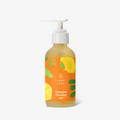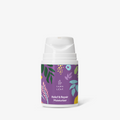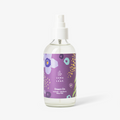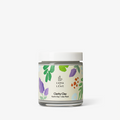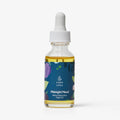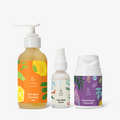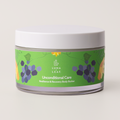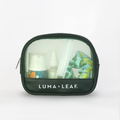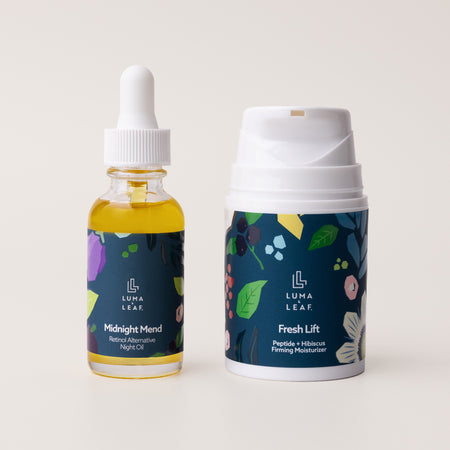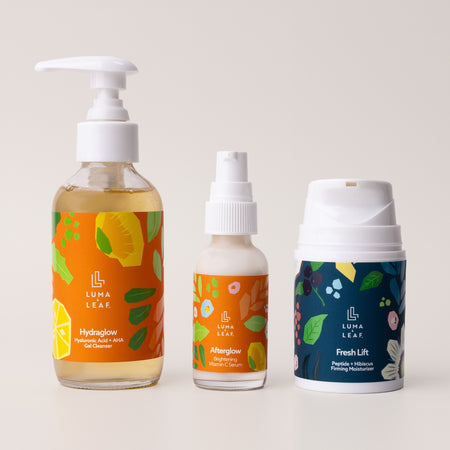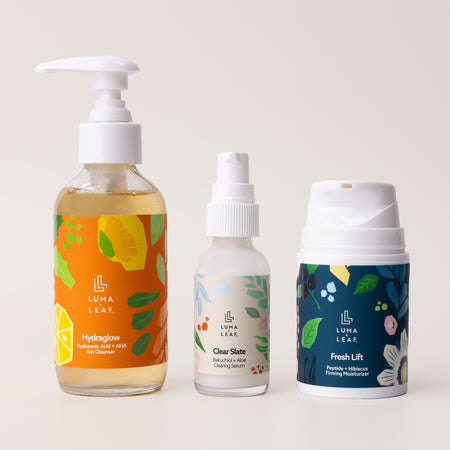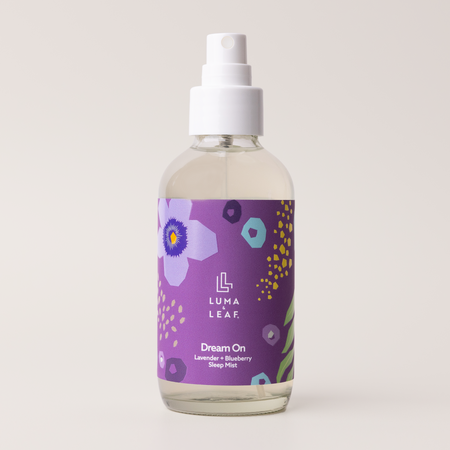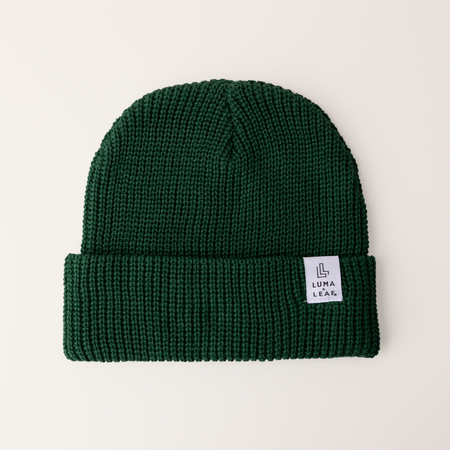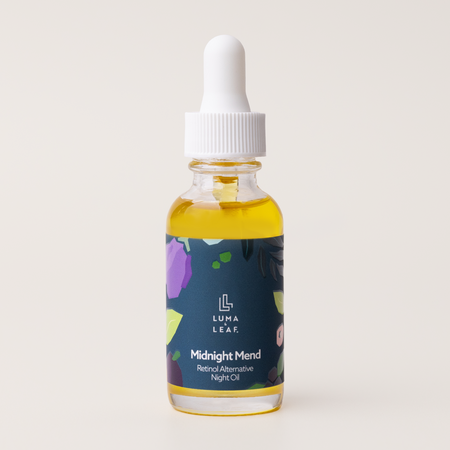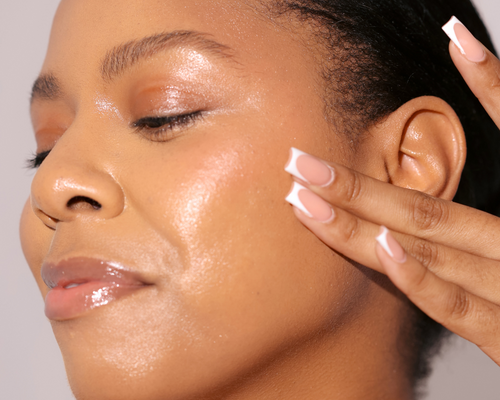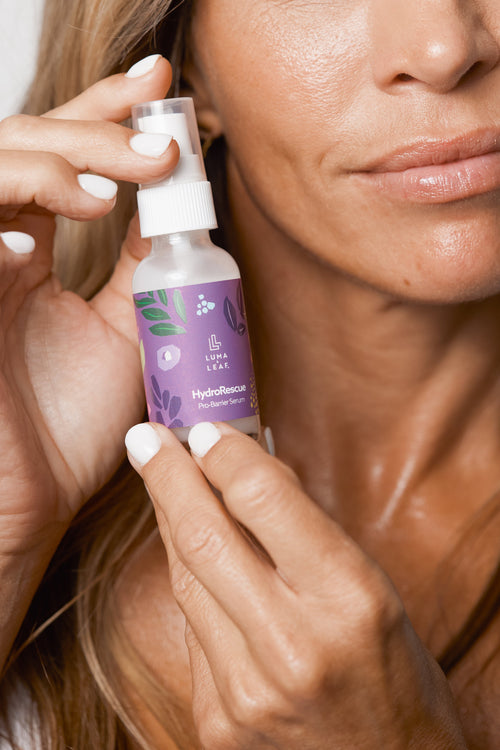
The science behind skincare is definitely complex. As you become more involved in learning about beauty products, it may start to feel a bit like drinking from a fire hydrant. And that’s not what we mean when we say hydration is essential.
Skincare suggestions and trending TikToks are thrown at you from every direction nowadays, making it confusing to know what’s a go and what’s a no. It’s even harder to determine which piece of information is applicable for your skin type and ultimately your lifestyle.
We're breaking down some of the common myths that may be muddying the water as you're trying to make good decisions for the health of your skin. You just might find that there's a better way to manage your beauty concerns, after all.
Myth #1: Dry Skin and Dehydrated Skin are the Same Problem
We wouldn't blame you if you thought that "dry" and "dehydrated" skin were the same problem. Even the thesaurus lists the two words as synonyms! When we're talking about your skin, though, these words can mean different things.
Dry skin is a skin type where people simply produce less oil than those with oily or combination skin. Dry skin is genetic, which means your solution looks more like purchasing products designed to treat this skin type.
In contrast, dehydrated skin happens when there is a lack of water in your system. Not drinking enough water could be to blame, but most of the water you drink is taken up by other organs in your body, so that's not the whole picture either. Your skin needs added moisture on the outside, too, in the form of a moisturizer.
They say that oil and water don't mix, but when it comes to your skin, they do— and you need both for a healthy, vibrant glow.
If you have normal or dry skin, check out Afterglow Serum and Luminous Light Moisturizer, offering antioxidant-rich, healing moisture.
Myth #2: Oily Skin Types with Acne Should Stay Away from Moisturizer
We all know that acne breakouts can result when oil, dirt, and bacteria clog your pores. Who doesn’t loathe a good breakout moment? Those with oily skin types tend to have more problems with acne because their body produces more oil. But remember before when we said your skin needed BOTH oil and water for a healthy balance?
Even if your skin has too much oil and results in acne, don’t assume moisturizers are out of the question for you. You can (and should) still use a lightweight moisturizer to balance your skin’s oil production. When you have oily skin, your skin is constantly working overtime to produce extra oil. Help it out by investing in a good, light moisturizer (oil-free or not) to layer on every morning and night after cleansing.
You can keep your skin healthy and hydrated while addressing the underlying problem that causes acne. It’s a win-win.
If you’re a skincare routine newbie, but you’re inspired to give your oily skin a better life, we designed a solution with you in mind. Our Get the All-Clear bundle gives acne-prone skin types the best of both worlds. Cleanse, apply serum, and then layer on moisturizer for a fresh face that’ll be ready to take on the day. Hello clear skin confidence!
Myth #3: All Sunscreens are Created Equal
You've likely heard many times that SPF (Sun Protection Factor) measures the amount of protection a sunscreen provides and the larger the number, the more protection you get.
While this is true to a certain degree, it's important to note that SPF only measures one type of harmful light rays. There are two types of radiation from the sun that we worry about: UVA and UVB.
UVB causes sunburns (which we can see) and UVA causes underlying skin damage (which we can't see), but both can lead to hyperpigmentation, early aging, or even inflammation. Many sunscreens protect you only from UVB rays. Even when the label says SPF 100, which you probably assume is the most protection you can get, it may not cover UVA rays.
Evolving medical science has shown us that many sun protective ingredients, like oxybenzone, octinoxate, homosalate, and nanoparticles, are actually harmful to your skin and damaging to the environment.
What you need to look for is a product, like mineral sunscreens, that provides broad-spectrum coverage that is healthy for you and our planet. Mineral sunscreens have been proven to reduce short and long-term damage to the skin. A.K.A., a product you need in your back pocket for, like, the rest of your life.
Myth #4: Eczema is just Dry Skin
It's true that eczema results in dry, itchy skin, but it's not quite as simple as that. The symptoms you see result from an inflammatory process and a compromised skin barrier.
In addition to moisture therapy, eczema strugglers need a skincare routine that will both address the inflammation and rebuild the skin barrier for healthy skin.
Within our Soothing Collection, you'll find Relief & Repair Moisturizer that was formulated with wild oats and botanical oils to soothe irritated skin. It’s a comfy and cozy solution, no doubt.
Myth # 5: Anti-aging Products are Only Useful for those of a Certain Age
You may have a particular age in mind where you would consider using anti-aging products. Until then, you don’t have to worry about it, right?
Here's the thing: Age isn't a skin type. It shouldn't always determine which products you use because ultimately skin that stays healthy and youthful over time is skin that has been protected, nourished and replenished over the years. And what's good for you in your 20s and 30s is still good for you in your 40s, 50s, and 60s. Caring for your skin is important at any age, and the sooner you start practicing healthy skincare habits, the healthier your skin will look and feel.
Researching and gathering a skincare routine that makes sense with your skin type is not going to be a quick, easy process. It takes time, patience, and a whole lot of persistence. But, enjoy the self-care time you’re going to have with yourself along the way. You may not even recognize the new you after you get that glow on.
